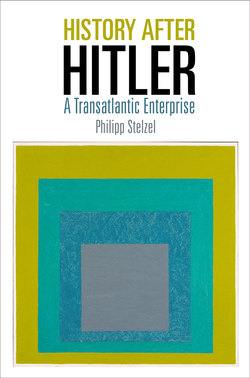History After Hitler

Реклама. ООО «ЛитРес», ИНН: 7719571260.
Оглавление
Philipp Stelzel. History After Hitler
Отрывок из книги
History After Hitler
Series Editors
.....
It should not be surprising—and will become evident in the following chapters—that interpreting modern German history after National Socialism was a politically fraught enterprise and that many academics felt a responsibility to contribute to debates beyond academia. The political designations of these historians used in the following pages are mine, unless explicitly noted otherwise. By contrast, terms such as “modern” or “progressive” to denote certain methodologies and approaches are those used by the contemporaries and do not reflect my own views, as I do not believe it is possible, for example, to label social history more “modern” than political or cultural history.
Finally, a note on the erkenntnisleitende Interessen (the knowledge-guiding interests) of this study is in order: The writing of historiographical texts in order to legitimize a new approach is an inherently problematic undertaking, and as we will see, this was as true for the protagonists of the Bielefeld school as it has been for their contemporary and later critics.61 This book therefore does not provide an ex-post-facto contribution to the debate between protagonists of Historische Sozialwissenschaft and their opponents among the diplomatic and political historians. Neither does it constitute a belated contribution to the German Methodenstreit (method dispute) between social historians and cultural historians.62 Finally, even though historians generally distinguish between affirmative and critical historiography, my analysis attempts to provide both. On the one hand, I illustrate how much the postwar transatlantic community has contributed to the historiography on modern Germany. On the other hand, this sympathetic view of many members of this scholarly community is compatible with its critical historicization. After all, as Allan Megill has emphasized, “the true historian needs to be committed to both objectivity and commitment, because ‘discernment of multiple perspectives is a condition of understanding human affairs,’ and thus is ‘also a prerequisite of attaining reliable historical knowledge.’”63
.....